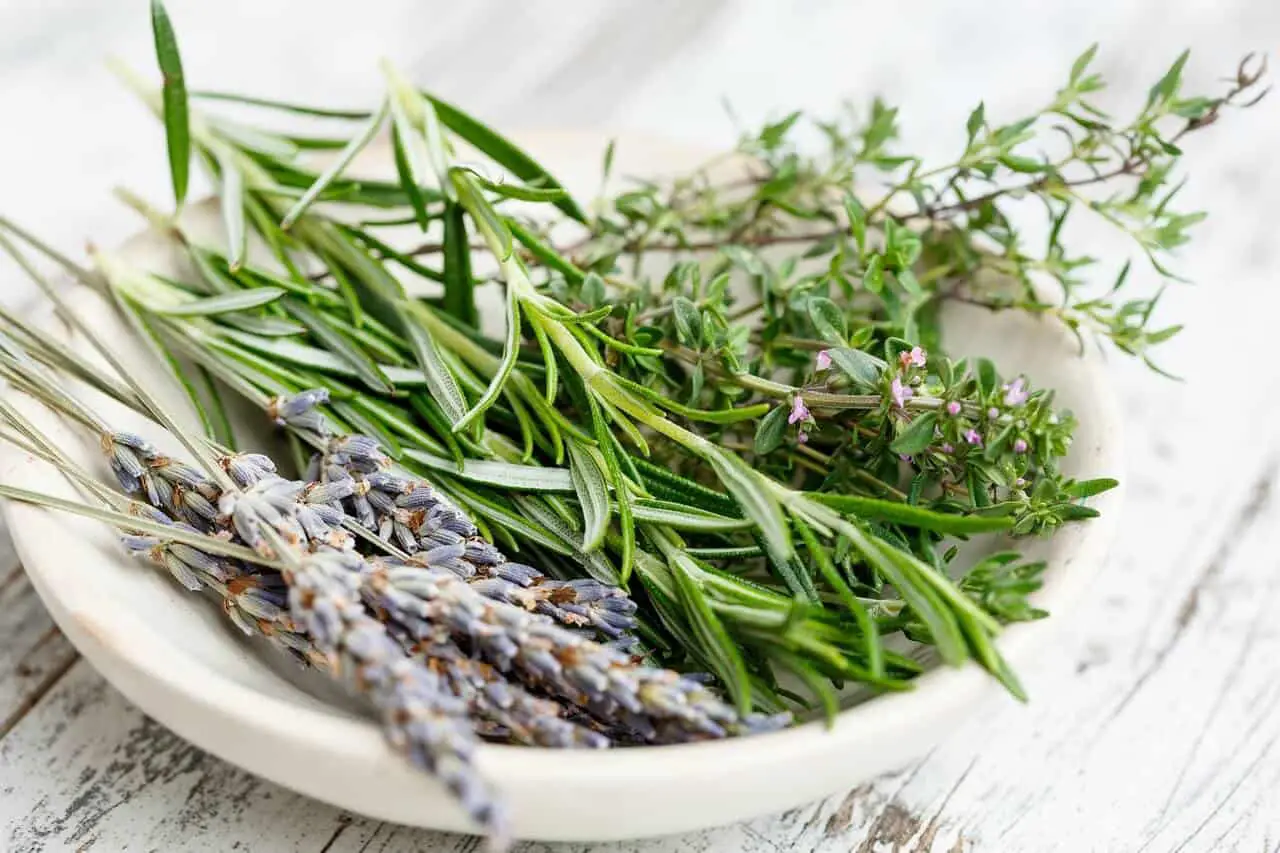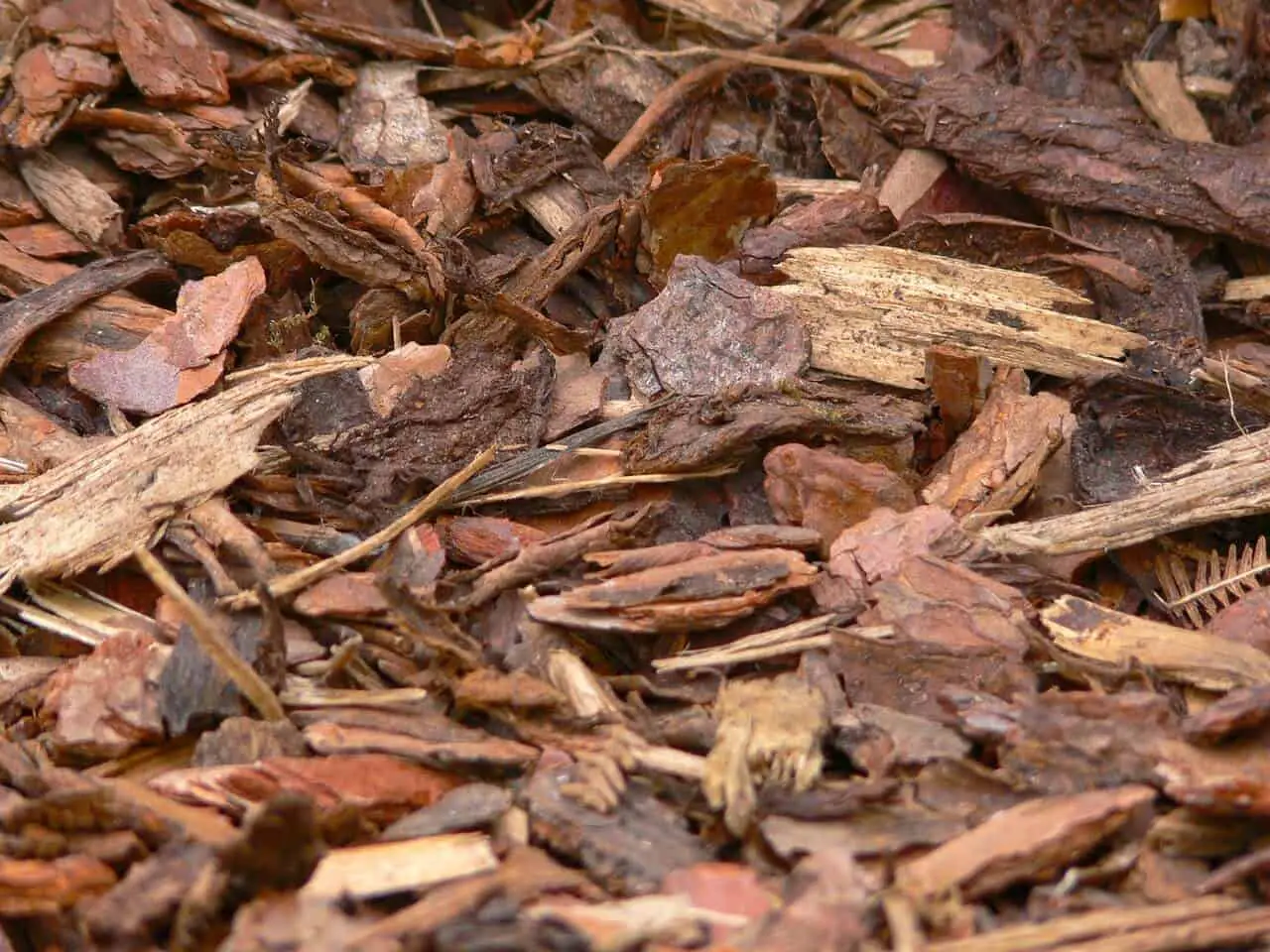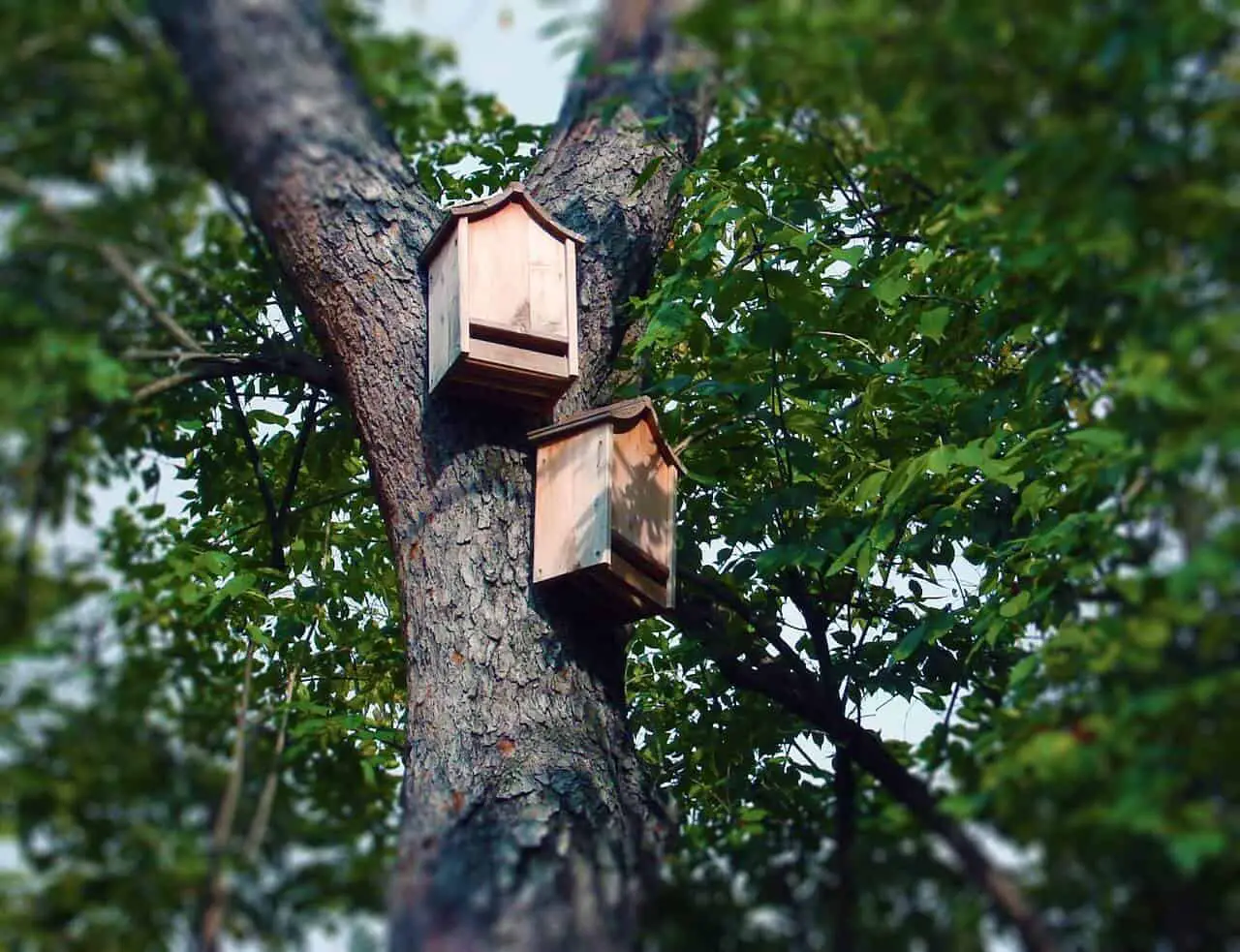Pests can come in all sizes, from the annoying buzz of a mosquito to the plant-eating nuisance of a deer. Whether you live in an urban area or a rural setting, various annoying country pests can ruin a perfect day for you and your family.
Finding safe and effective natural ways to keep pests away is important for many people. So many chemical options are not only unhealthy for your family and pets but dangerous for many beneficial insects and animals as well.
Additionally, many home remedies include the use of essential oils, which, while effective in some cases, can be very cost-prohibitive over time. When you need to repel pests from a large area or piece of property, there is a wide range of other alternatives to consider.
Natural Pest Repellent For The House
Pests around the house can include small black ants, house flies, fruit flies, and fleas. You might also have a problem with mice or even squirrels getting into your attic or basements. These nuisance animals can destroy insulation, chew on wiring, and cause general havoc inside your home.
Most people don’t like the idea of using harsh chemicals or dangerous poisons to get rid of these pests, especially when they have to be used around their children and pets. Finding safe and effective alternatives is significant. Here are three all-natural repellents you can try around your home.
1. Diatomaceous Eartmarh (DE)
Fleas are something every pet owner has to deal with at one time or another. Finding a safe and natural way to repel fleas is significant. Chemical flea medications, sprays, and shampoos can cause health problems with some pets and allergic reactions with some owners.
Diatomaceous Earth is an all-natural powder that is around 80% silica. Created from microscopic algae called diatoms which are naturally occurring organisms. This makes DE safe for use around your children and pets.
DE is excellent for use as a flea powder on your pets as well as in your carpet. It can also be used in the garden to eliminate slugs, tomato hornworms, caterpillars, and many other insects. Additionally, it can be used in the kitchen to deter and eradicate ants, spiders, and other crawling pests.
You can purchase diatomaceous Earth in both food grade and industrial grade, so be sure to get food grade DE for use inside your home and around your family and pets. You can easily find it in both small and large amounts depending on your needs. (DE can also help with mites and bed bugs)
2. Pepper and Garlic Spray
Sprays are a quick and easy way to help rid your home and garden of annoying insects, including ants, flies, mites, and more. Making your own all-natural spray can not only be highly effective but can also give you peace of mind knowing you aren’t using harsh chemicals around your home.
Start by thoroughly blending two hot peppers and four cloves of garlic. Add two cups of water and let the mixture sit for 12 hours. After 12 hours, strain the mixture into a spray bottle. Add two cups of water to dilute. Add one tablespoon of liquid dish soap to act as an emulsifier and give the bottle a shake.
This mixture can be applied directly to your houseplants, garden plants, and around your homes, such as in the basement or attic, weekly. The spray will help repel a wide range of insects as well as some rodents and squirrels.
3. Live Rosemary Plants and Other Herbs
Keeping live herbs in your kitchen can help repel various insects, including fruit flies, gnats, and ants. Rosemary is a popular herb to keep due to its aromatic odor and its many uses in food dishes when cooking.
Rosemary is an extremely easy herb to keep. It can remain on your windowsill or kitchen counter and requires very little care. The natural smell of the plant can help deter common household insects from wandering into your home.
You may also choose to place a few rosemary leaves in areas where ants are seen most often. The smell of the rosemary will deter them and help send them on their way.
You may also choose to keep Catnip, Peppermint, Basil, or Thyme instead of Rosemary. All of these herbs share the same aromatic qualities.
Additional ways to repel household insects can include using fresh lemon juice and lemongrass oils. Most commonly found as a cleaning agent, lemon is not only effective at cleaning a wide range of household surfaces, but it also acts as a natural repellent for houseflies and some spiders.
- Rosemary
- Catnip
- Peppermint
- Basil
- Thyme
- Lemongrass

Effective Rodent and Insect Repellent In The Barn
Rodents can be a huge nuisance around the barn. Both rats and mice can get into feed storage areas, chew on electrical wires and horse tack, and nest in bales of haymaking it unsafe to feed to your livestock.
Additionally, insects such as biting flies and ticks can be frustrating to deal with daily in your barn and livestock areas. These pests can also make horses and livestock uncomfortable, which in turn makes them harder to handle.
Finding safe and effective ways to get rid of these pests without risking harm to your livestock is important. Here are three safe and natural ways to help eradicate these annoying pests.
4. Neem Oil
Commonly used in and around horse barns, Neem Oil is highly effective at repelling biting insects and rodents. You can directly spray this thick, all-natural oil around feed bins, hay storage areas, and tack rooms to prevent rodents from frequenting the area.
Additionally, You can dilute it with water and a small amount of liquid dish soap to be used as an insect deterrent spray. This mixture can be safely sprayed directly on horses, livestock, and garden plants to get rid of mosquitos, horseflies, biting gnats, aphids, ants, and more.
Pure Neem Oil may be hard to find or impossible to get in some countries, so be sure to ask other livestock owners if they have safe alternatives that will work for you.
5. Peanut Oil Rodent Traps
This trap is a straightforward and highly effective way to remove rodents from your barn humanely. Considered a live trap, peanut oil traps will allow you to relocate the unharmed rodents to a better location instead of letting them reproduce freely on your property.
Ultimately you will need a bowl, short bucket, or other container and some peanut oil used for cooking. Place the oil into the container so it is about an inch deep, and place the container in areas where rodents frequent.
Ensure there is a ramp or other way for the rodents to reach the top edge of the container. The rodents will be drawn to the smell of the oil and will slide into the container. They will then be unable to get out because of the slipperiness of the oil.
Check the trap daily and relocate the live rodents to a better place for them to live. The peanut oil will not harm them, and they can clean themselves up over time. Other cooking oils can be used instead of peanut oil, though they may not be effective due to the lack of smell.
6. Cedar Mulch or Cedar Oils
While not usually the best choice for use in horse stalls, you can use cedar mulch around the exterior of your barn as well as in walkways and riding arenas. The natural odor given off by both fresh and aged cedar can repel various insects, including ticks, mosquitos, biting flies, and even scorpions.
Cedar oil is another alternative if mulch is not an option, though it can be more expensive and is best used in smaller areas. Spray cedar oil around tack rooms and grain storage areas to reduce grain mites and rodents in the area. Reapply it weekly to provide the best benefits.
Other ways to reduce the number of pests in or around your barn can be as simple as relocating your manure piles. If you keep these near the barn, they can be a breeding ground for biting flies and other annoying insects. Try moving the manure pile further away and see if that helps reduce the number of insects that make their way into the barn.
Rodents are often attracted to hay piles and food sources. Keep your grain storage containers tightly sealed and ensure there are no holes chewed into the container. Additionally, if possible, store hay in a loft or a building separate from your livestock barn. Rodents commonly look for nesting areas low to the ground, so hay in lofts is usually safe from nesting rats and mice.

Pest Control Around the Property
Deer and rabbits can be a big nuisance around the property. Deer and rabbits can quickly destroy vegetable gardens and young fruit trees if left unprotected.
If your property has a pond or lake, mosquitos and other insects can be a nuisance as well. Still, water makes an excellent breeding ground for various insects you might not want to have around.
Additionally, foxes can be a nuisance around your poultry coops and vegetable gardens. They wreak havoc in various ways but can be quite easy to scare off. Here are four all-natural solutions to repel or eradicate these pests.
7. Bat Houses
Bats have voracious appetites and can eat a thousand insects each night. These insects can include wasps, moths, mosquitos, mayflies, and other bugs that may harm your garden or crops.
By placing bat houses around your property, you can encourage bats to take up residence on your farm. This ensures you always have a few bats around to help take care of your insect problem.
Bats are misunderstood and may not be favored by many people, but they can be one of the most valuable wild residents on your property. They serve as very effective insect eradicators and make valuable crop and fruit tree pollinators.
In Idaho alone, bats account for 46% of the entire state’s mosquito control. Without bats, the cost of controlling mosquitoes would double!

8. Solar-Powered Deer Scares
Sometimes the best way to keep deer away from your property is by scaring them. Various types of deer scares can be made or purchased, including solar-powered deer scares, which are the most popular and easiest to get started with.
These cost-effective units can be secured to trees or fence posts around your property. Since they are solar-powered, there are no wires or electricity costs to worry about.
Deer scares have a motion sensor, and when movement is detected, the unit will emit a startling sound. This sudden and unsuspected sound can scare off a wide range of pests, including deer, rabbits, raccoons, foxes, and more.
Deer scares are best placed away from your home as their sound can distract you and your neighbors. Try placing them near outbuildings, crop fields, or perimeter fencing.
9. Live Marigold and Lavender Plants
You might already have some Marigolds or Lavender growing around your property. These two plants are very aromatic and can deter rabbits and hares and a variety of insects. The smell these plants emit is one humans find pleasant but many rabbits will avoid.
Planting these plants in areas where rabbits are causing problems, such as near your garden or around your barn, can help deter rabbits and hares from setting up residence in the area. Additionally, Marigolds and Lavender are low-maintenance plants, meaning you won’t have to worry about daily watering, fertilizing, or pruning. You can very much plant them and forget them!
10. Motion-Activated Lights
More suitable for use near an outbuilding or chicken coop, these lights have a motion sensor. When movement is detected, the bright lights will switch on for a minute or two. This can be enough to scare away foxes, deer, and even neighborhood dogs and cats.
You can find these lights in both solar-powered and electric versions. They are very easy to install and can be highly effective at deterring some animals from starting trouble on your property.
Additional ways to deter animals from visiting your gardens, chicken coops, and other areas of the property include installing a strand of electric wire low to the ground. This may not always be the best option due to additional electricity costs and general setup hassle, but it can be very effective when used.
You can also place L-shaped strips of fencing around your garden or chicken pen. This fencing ensures rabbits, raccoons, foxes, and other nuisance animals cannot dig under the fence and get into your enclosed areas. Ensure the fencing is secured tightly and staked into the ground for the best results.
Conclusion
Watching a deer walk delicately through your yard or a fox wander past your garden may be an enjoyable part of living in the country. But once these creatures start ruining your vegetable garden or killing your chickens, you might decide their welcome has been overstated.
Finding the right all-natural ways of deterring or removing these pests may take some trial and error, but once you find the right method, your time in the country will be much more enjoyable.


